Cognitive Development Geometry Worksheets for Ages 3-6
18 filtered results
-
From - To
Our Cognitive Development Geometry Worksheets for ages 3-6 are designed to foster early brain development through engaging, hands-on activities. Tailored to young learners, these worksheets introduce basic geometric shapes, spatial awareness, and problem-solving skills in a fun, interactive way. Each worksheet encourages kids to explore new concepts and enhance critical thinking, setting a strong foundation for future learning. Ideal for parents and educators, this resource combines education with play, promoting a love for math and boosting confidence in young minds. Equip your child with essential cognitive skills while making learning an enjoyable adventure!
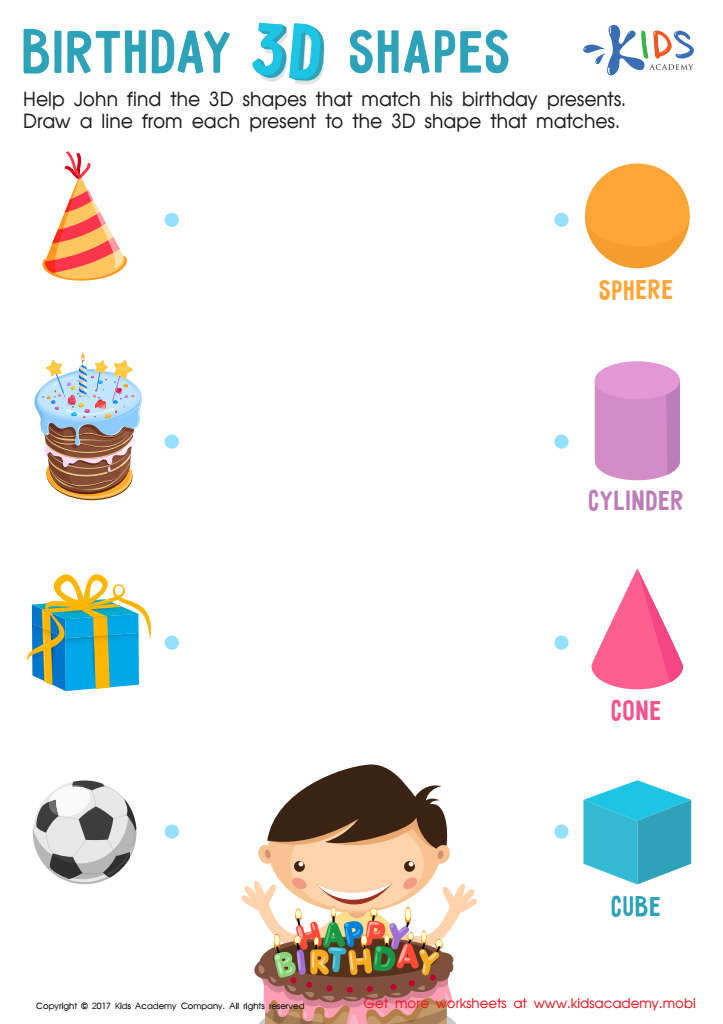

Birthday 3D Shapes Worksheet
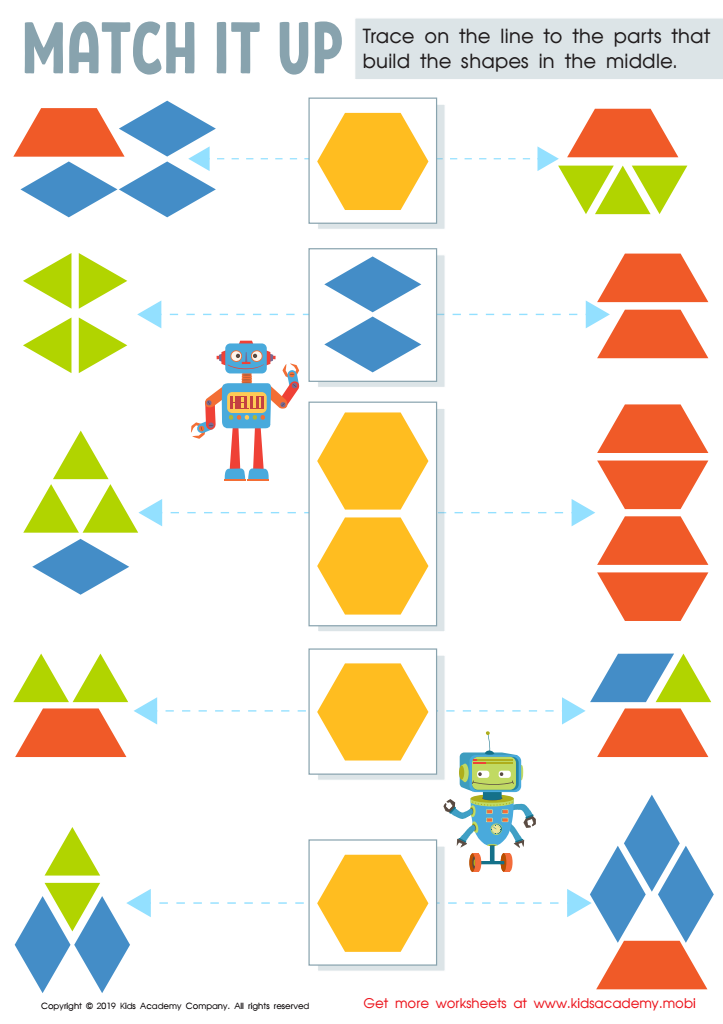

Match It up Worksheet
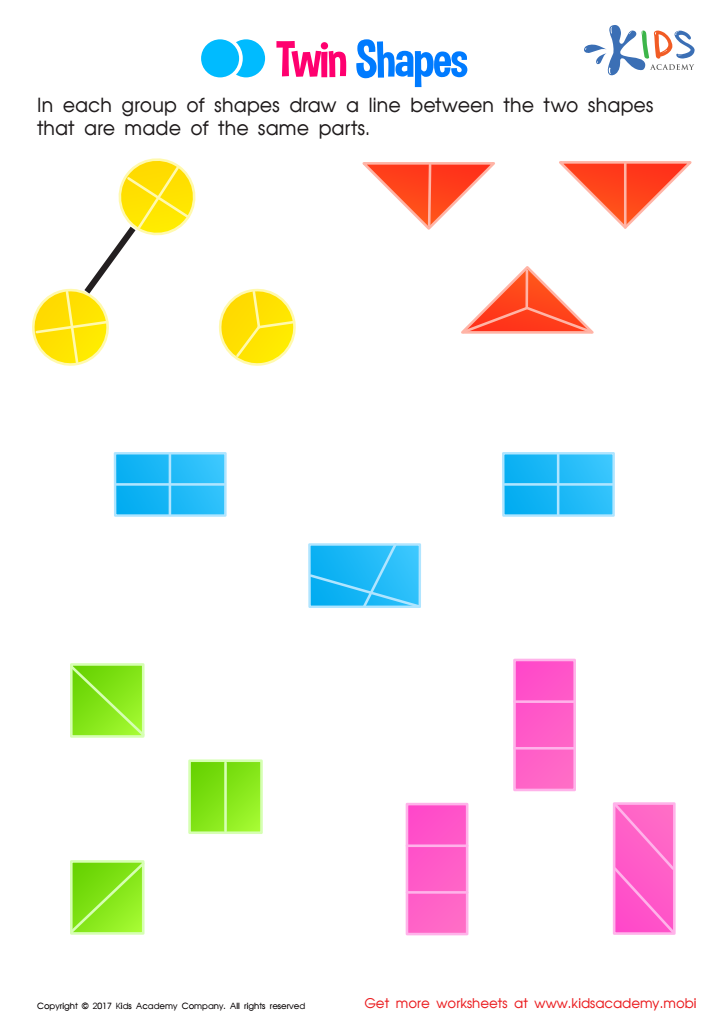

Twin Shapes Worksheet
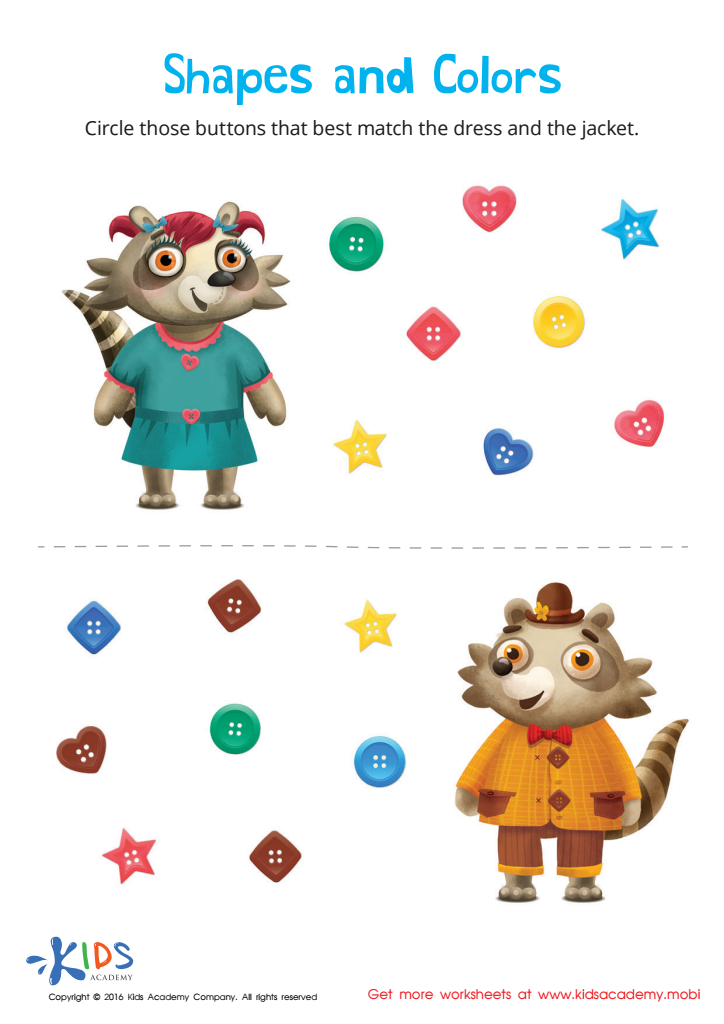

Matching: Shapes and Colors Worksheet
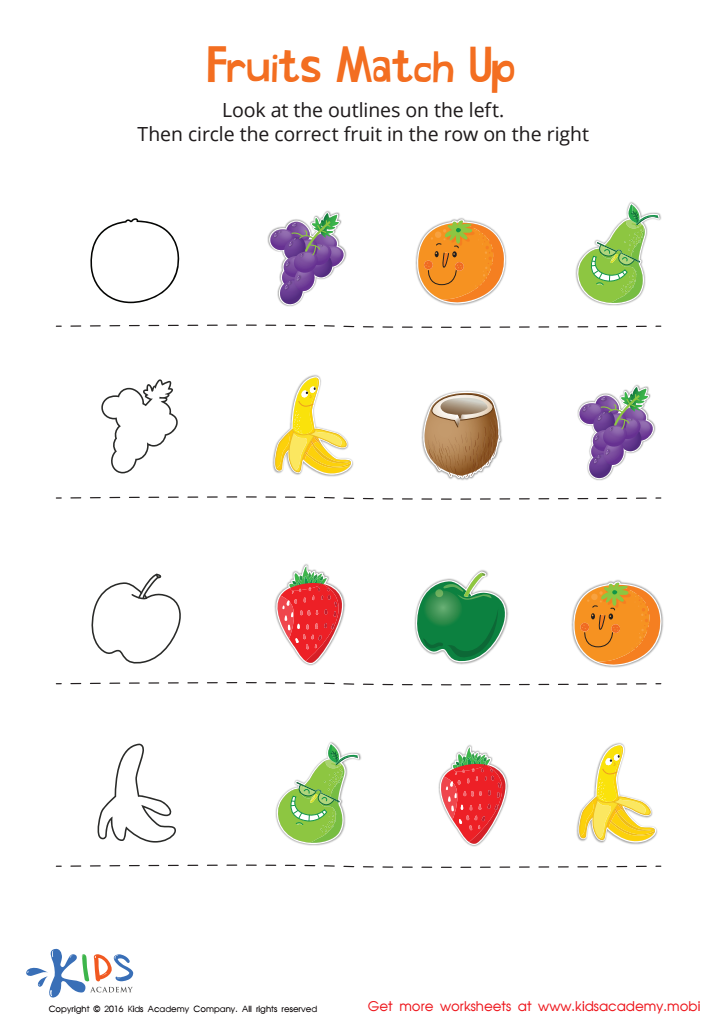

Fruits Match Up Worksheet
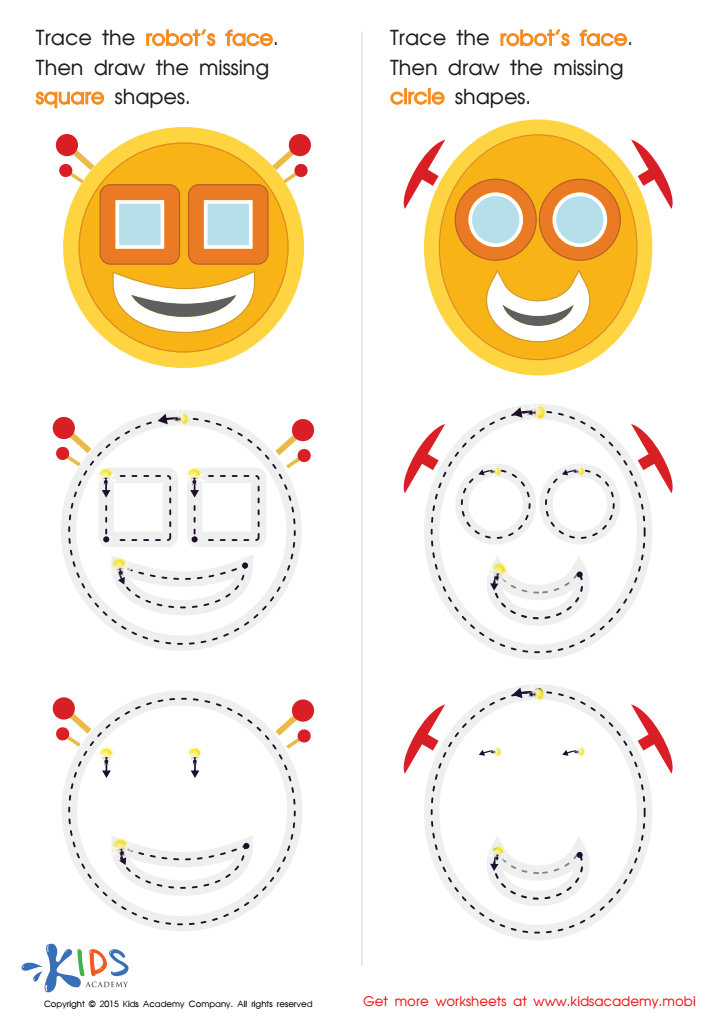

Practicing to Draw Circles And Squares Printable
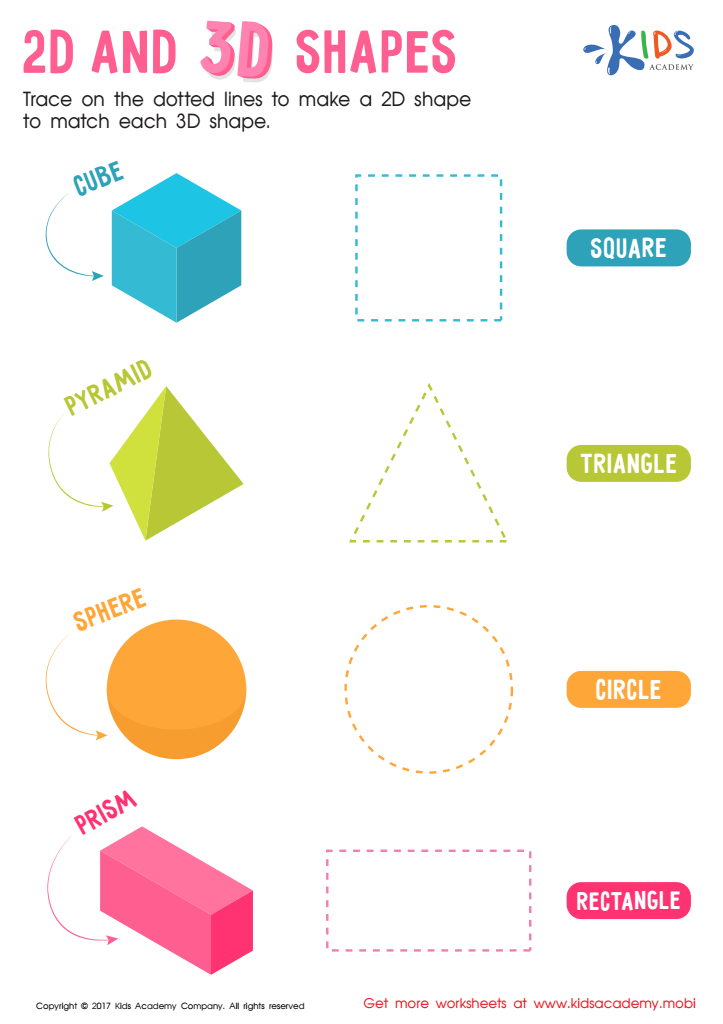

2D and 3D Shapes Worksheet
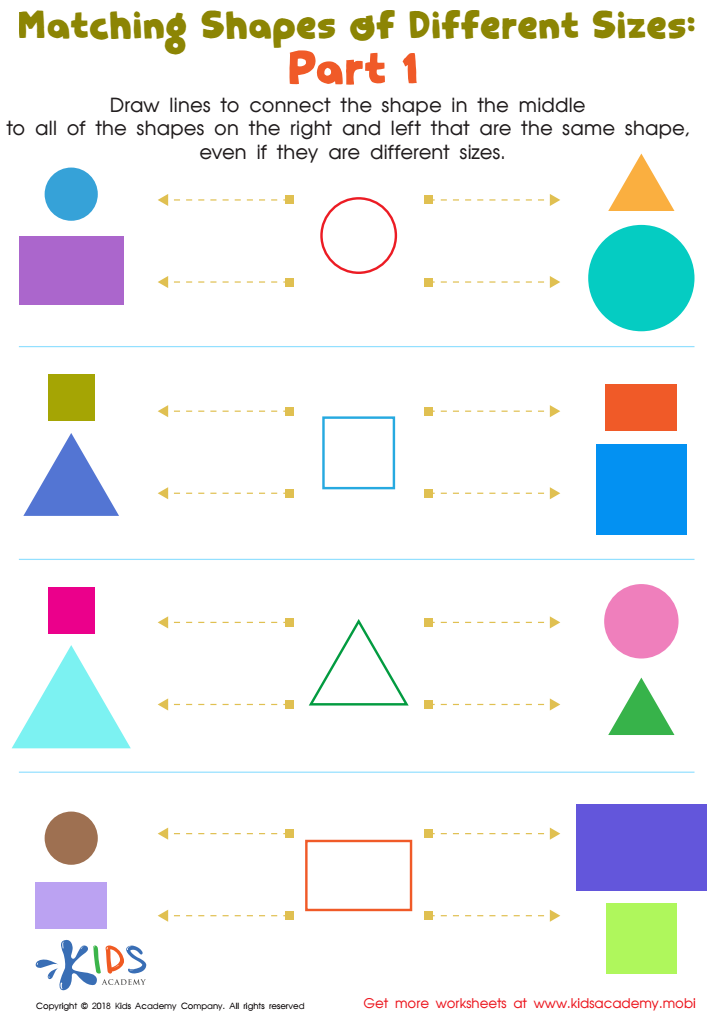

Geometry: part 1 Worksheet


Preschool Geometry Match Up Worksheet
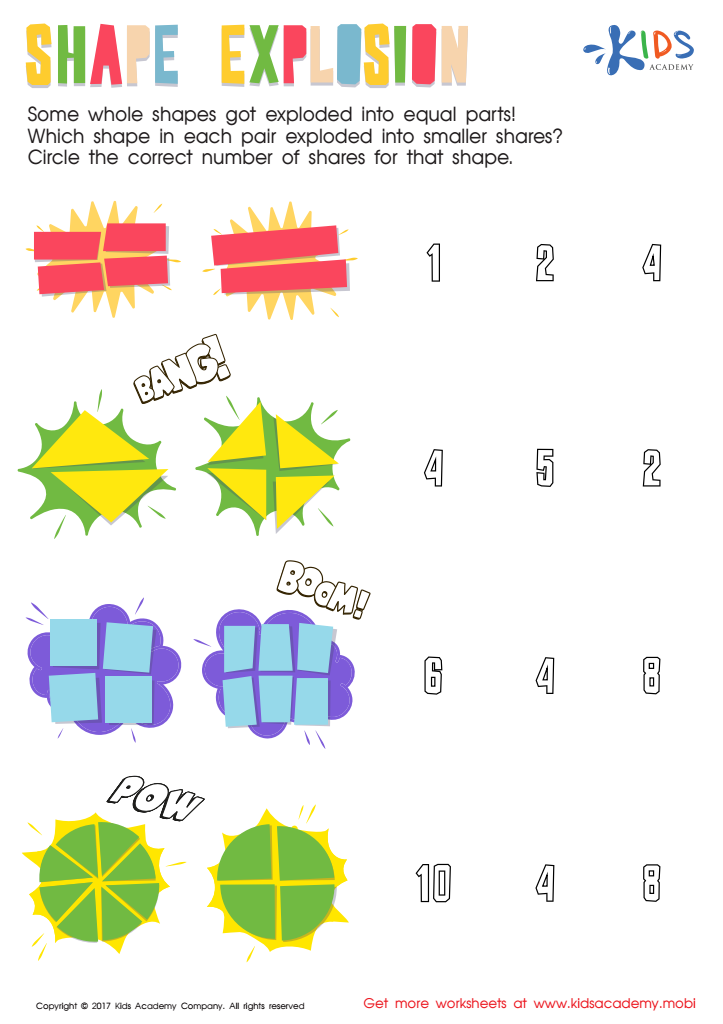

Shape Explosion Worksheet
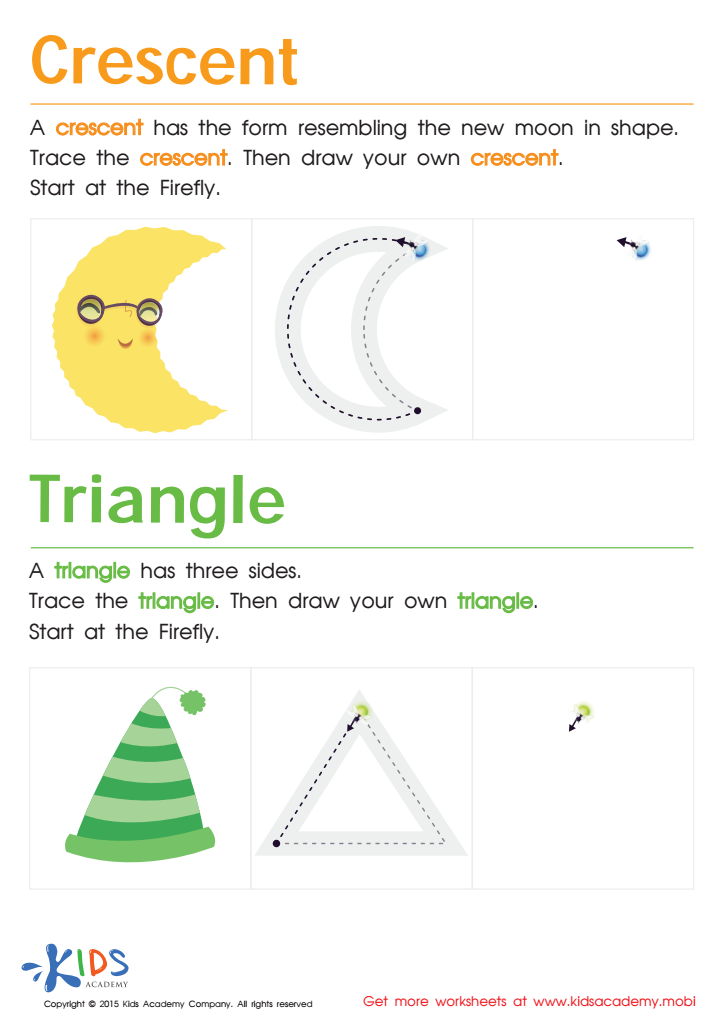

Learning to Draw Crescents And Triangles Worksheet
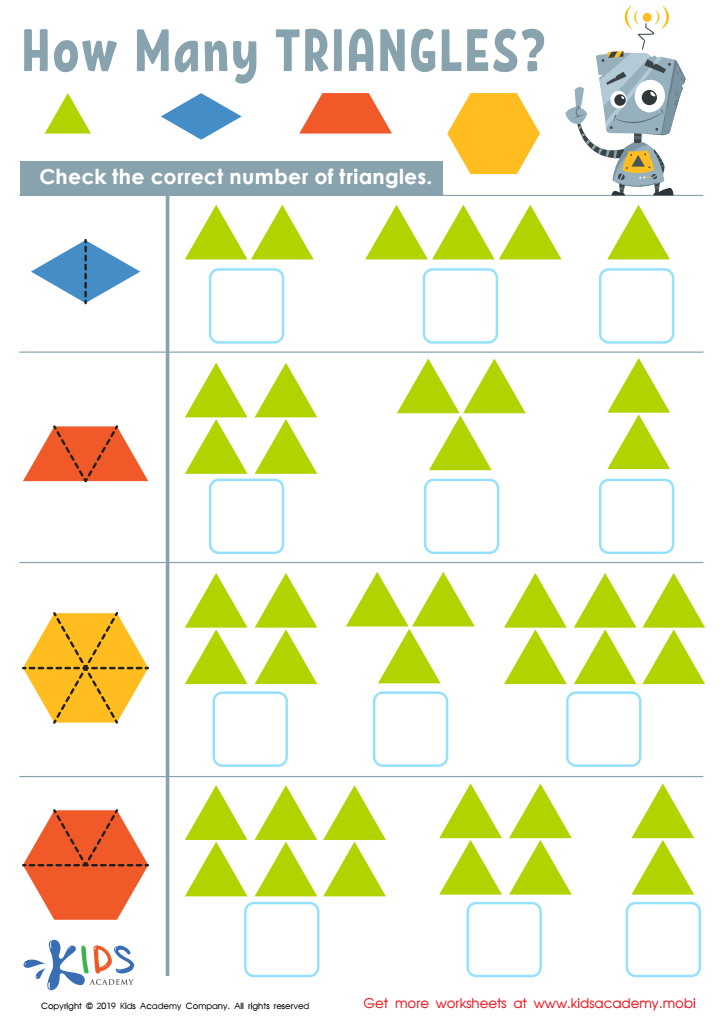

How Many Triangles Worksheet
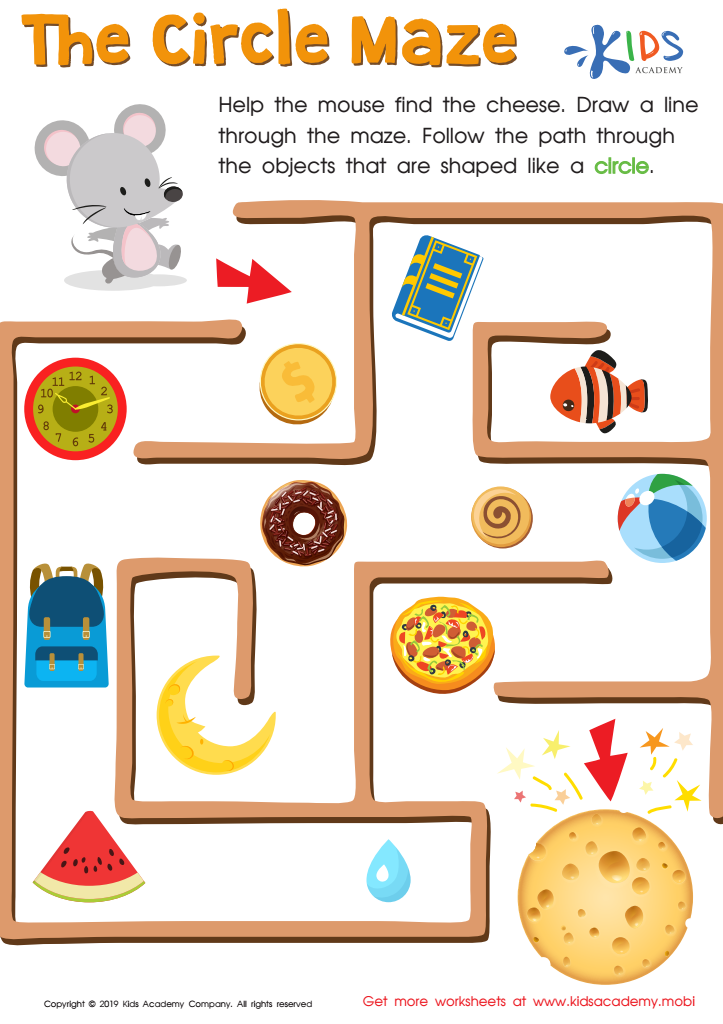

The Circle Maze Worksheet
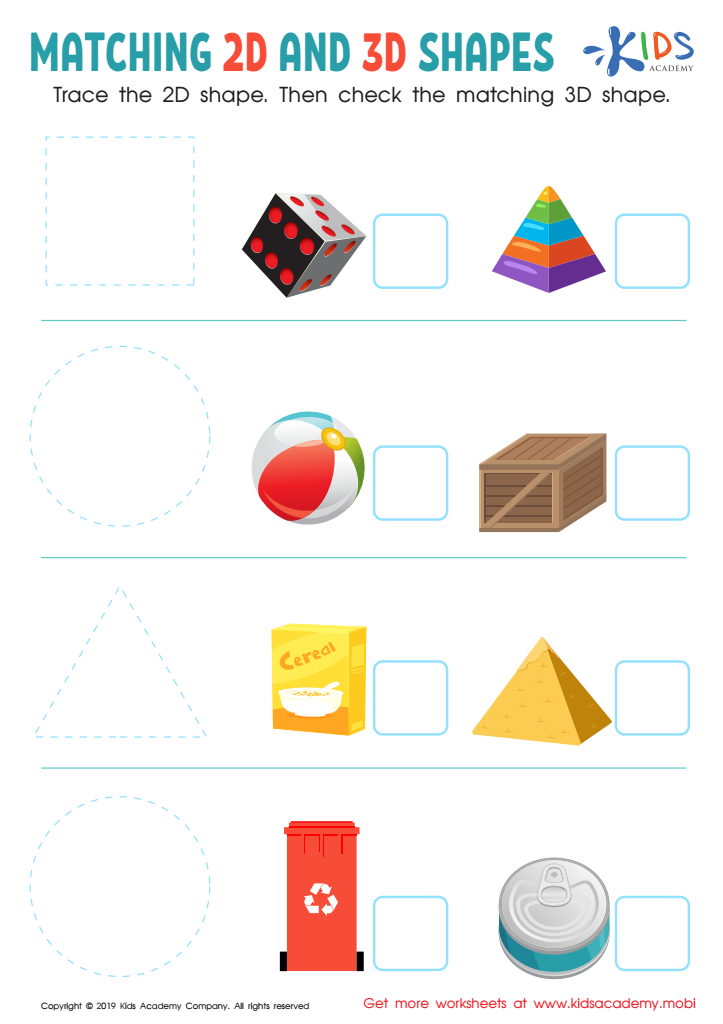

Matching 2D and 3D Shapes Worksheet
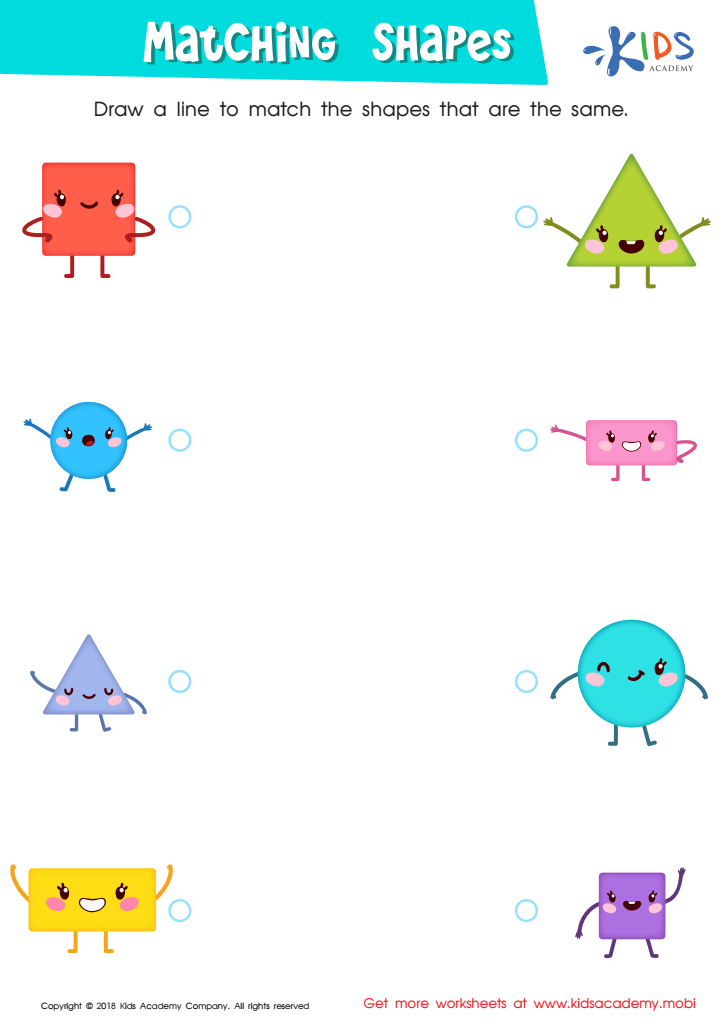

Matching Shapes Worksheet
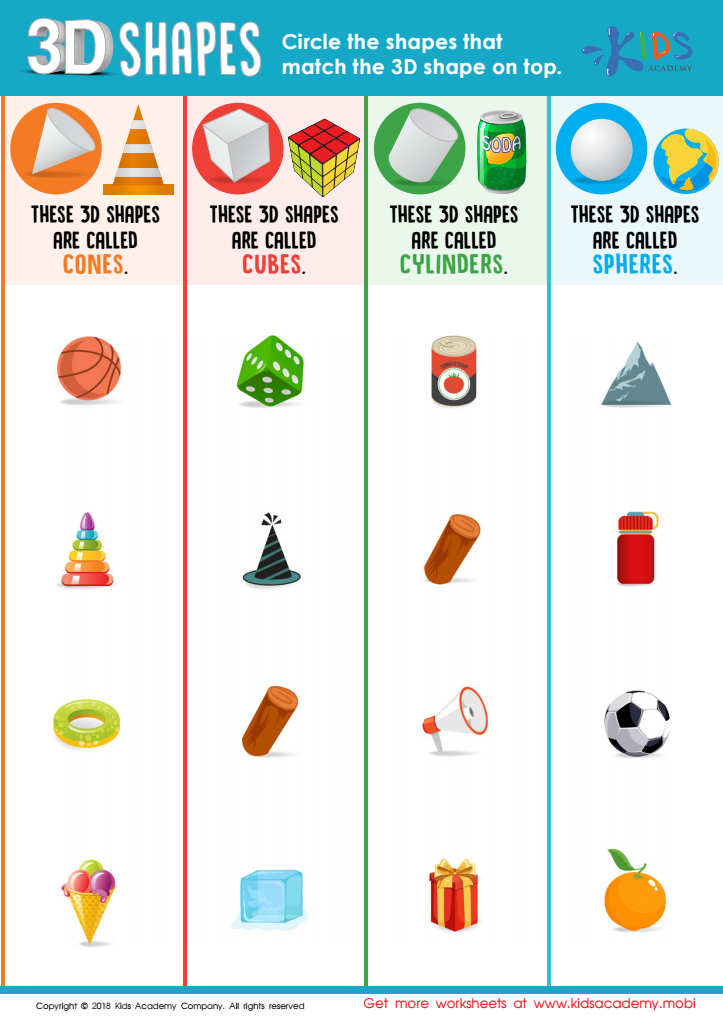

3D Shapes Worksheet
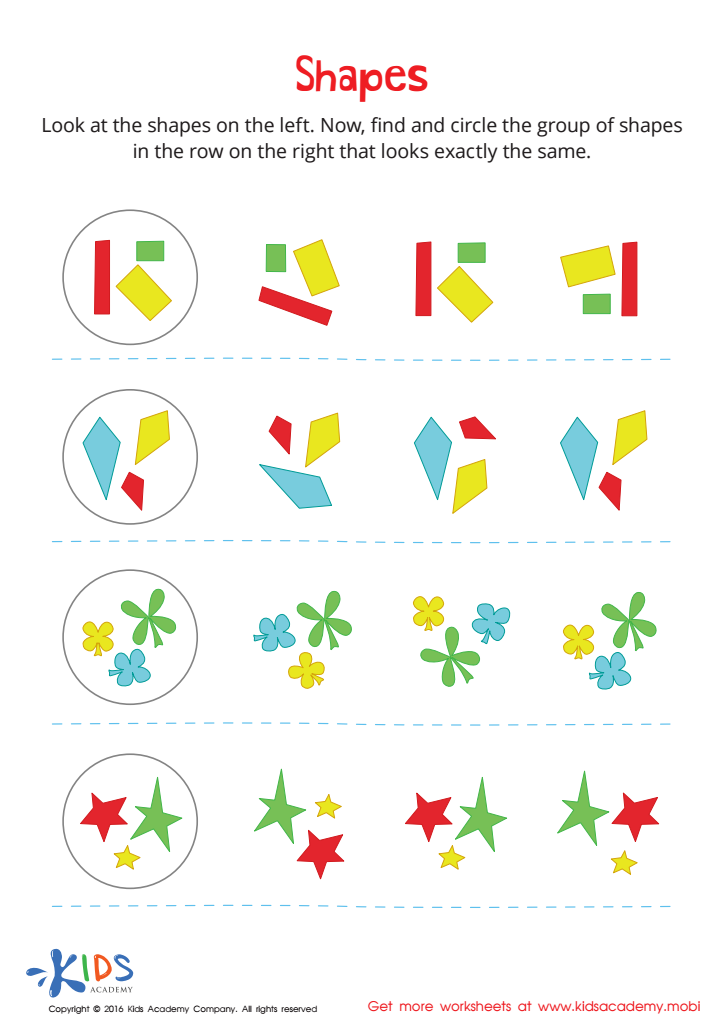

Shapes Worksheet
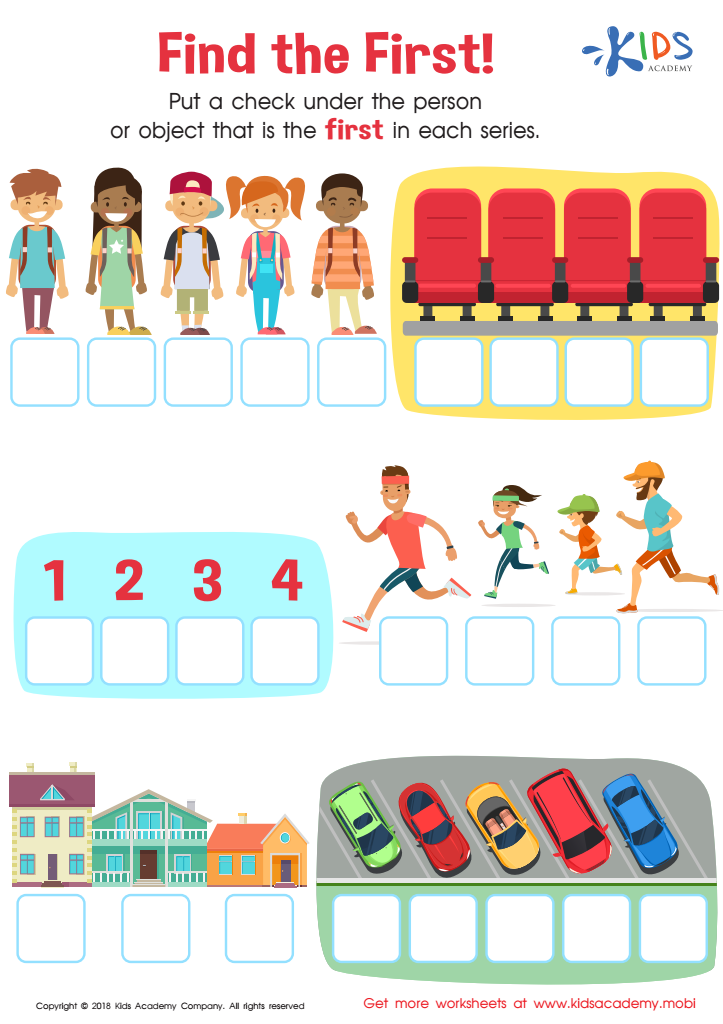

Find the First! Worksheet
Cognitive development in the realm of geometry for ages 3-6 is crucial for setting a foundation for overall intellectual growth. At this early stage, children are exceptionally receptive to learning, and engaging with shapes and spatial reasoning boosts both their cognitive and motor skills. By exploring geometric concepts like identifying shapes, understanding their properties, and recognizing patterns, children enhance their problem-solving abilities, which will benefit them academically across all subjects.
Geometry also helps develop language skills. When children describe shapes and their characteristics, like the "round circle" or the "corners of a square," they expand their vocabulary and ability to express complex ideas. Such interactions build not just academic literacy but social communication skills as well.
Moreover, geometry in early childhood lays the groundwork for more advanced mathematical concepts. The ability to think spatially and recognize patterns plays a pivotal role in subjects ranging from physics to art. Activities involving geometry encourage children to use logic and reasoning, which are critical components of STEM education.
Parents and teachers must understand that geometric learning is not limited to pen-and-paper exercises but can be ingrained through playful activities like building blocks, puzzles, and drawing. These enjoyable experiences not only make learning fun but also instill a sense of curiosity and confidence in children, fostering a lifelong love of learning.
 Assign to My Students
Assign to My Students





















